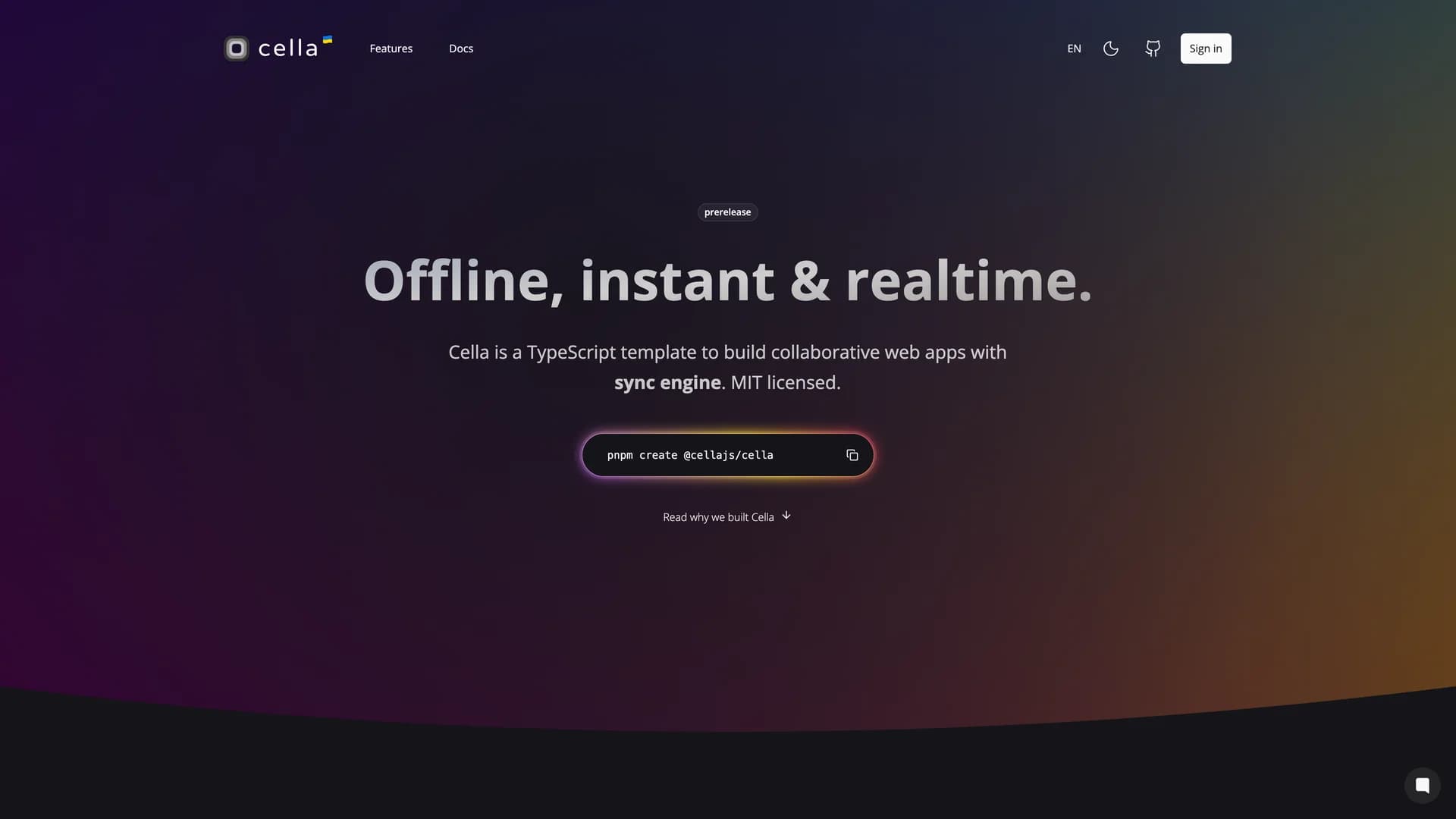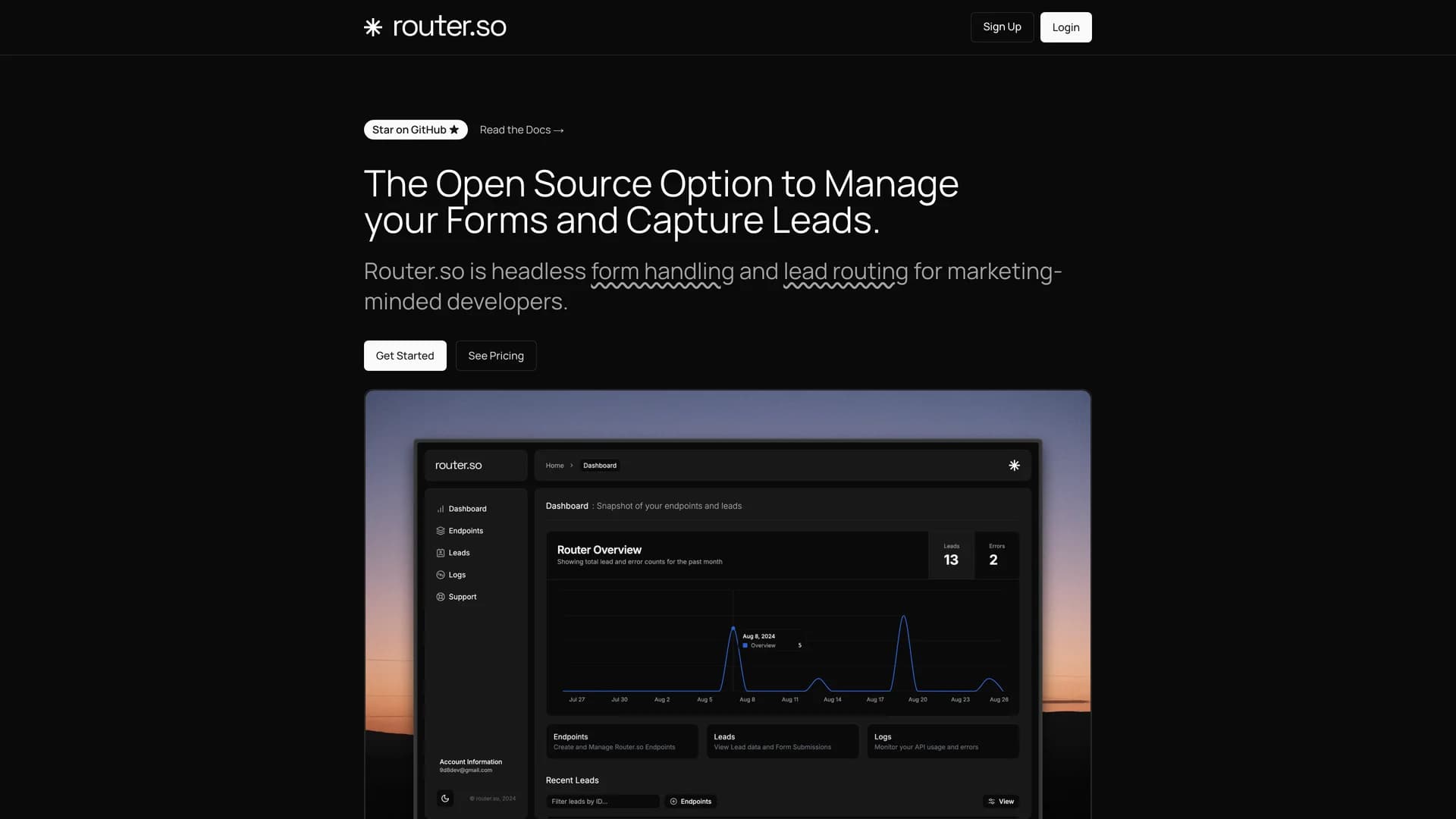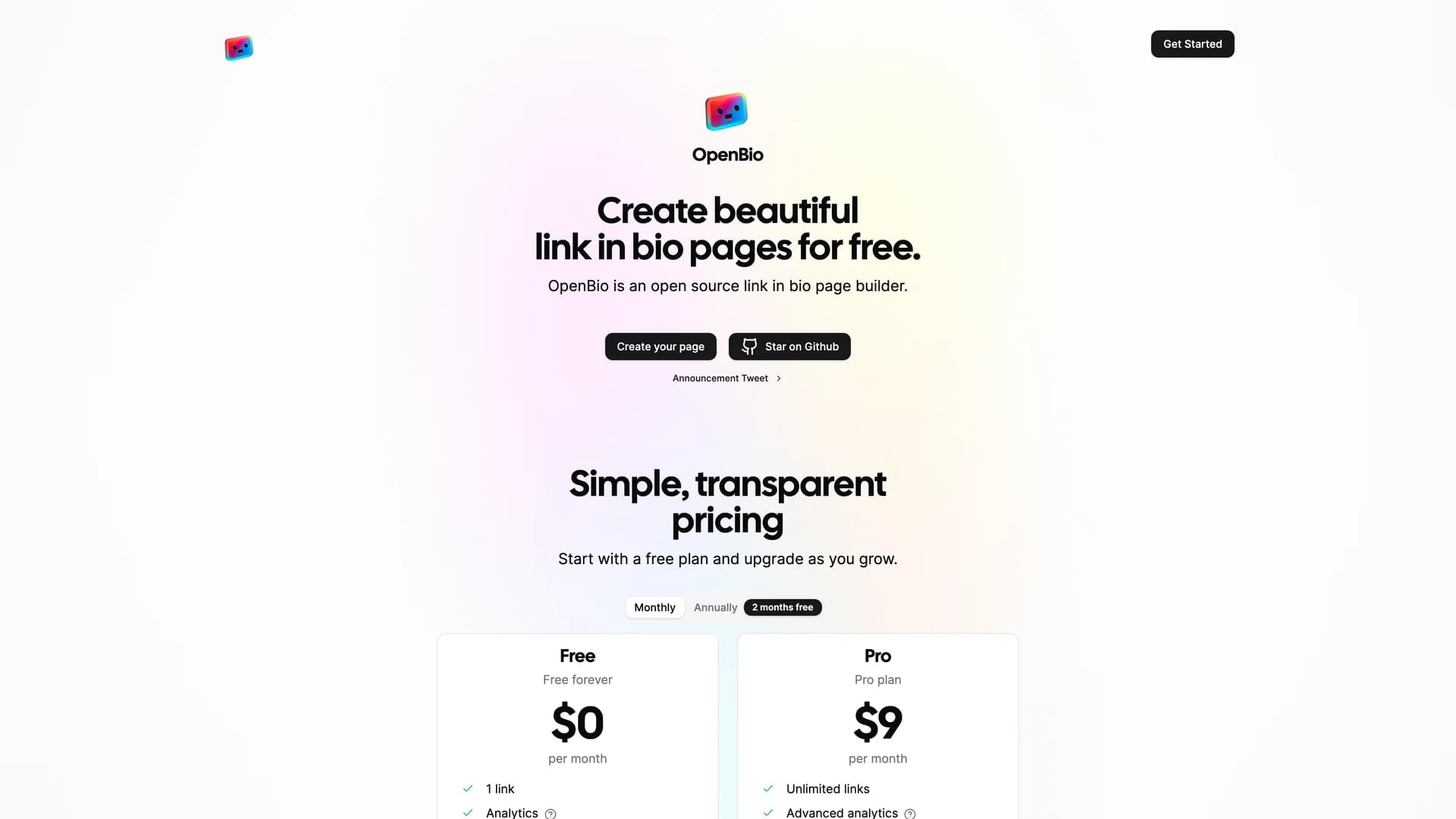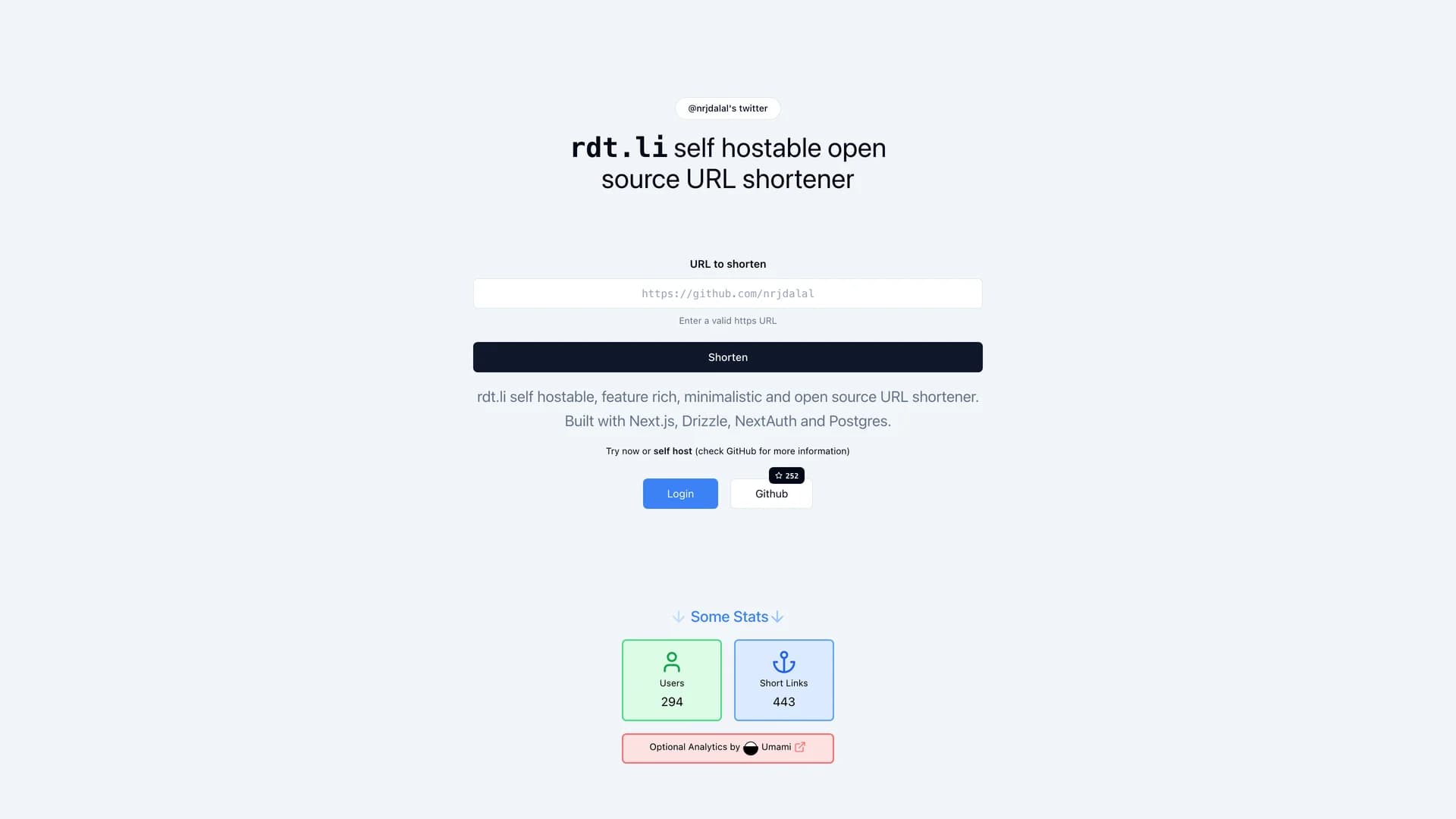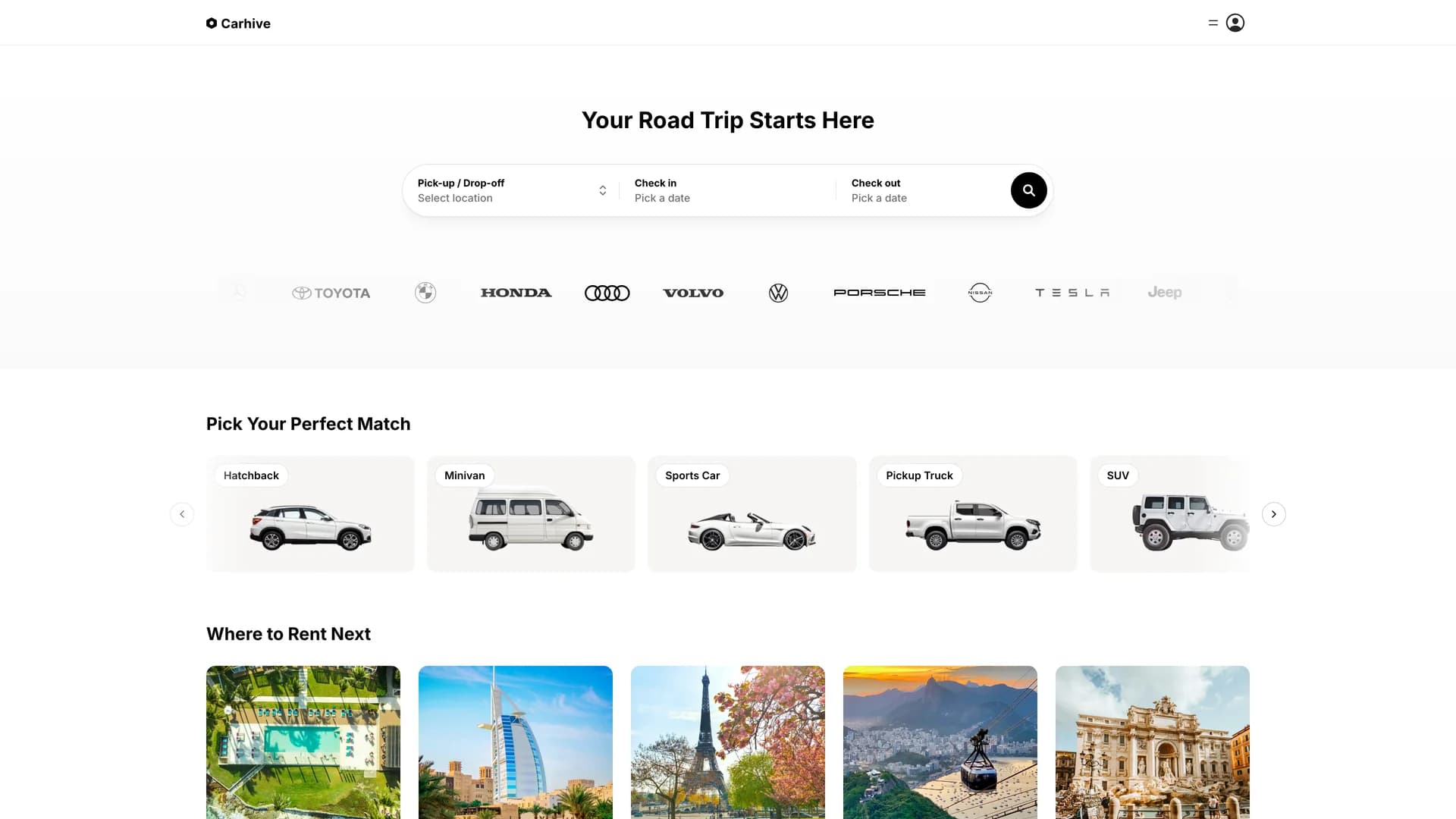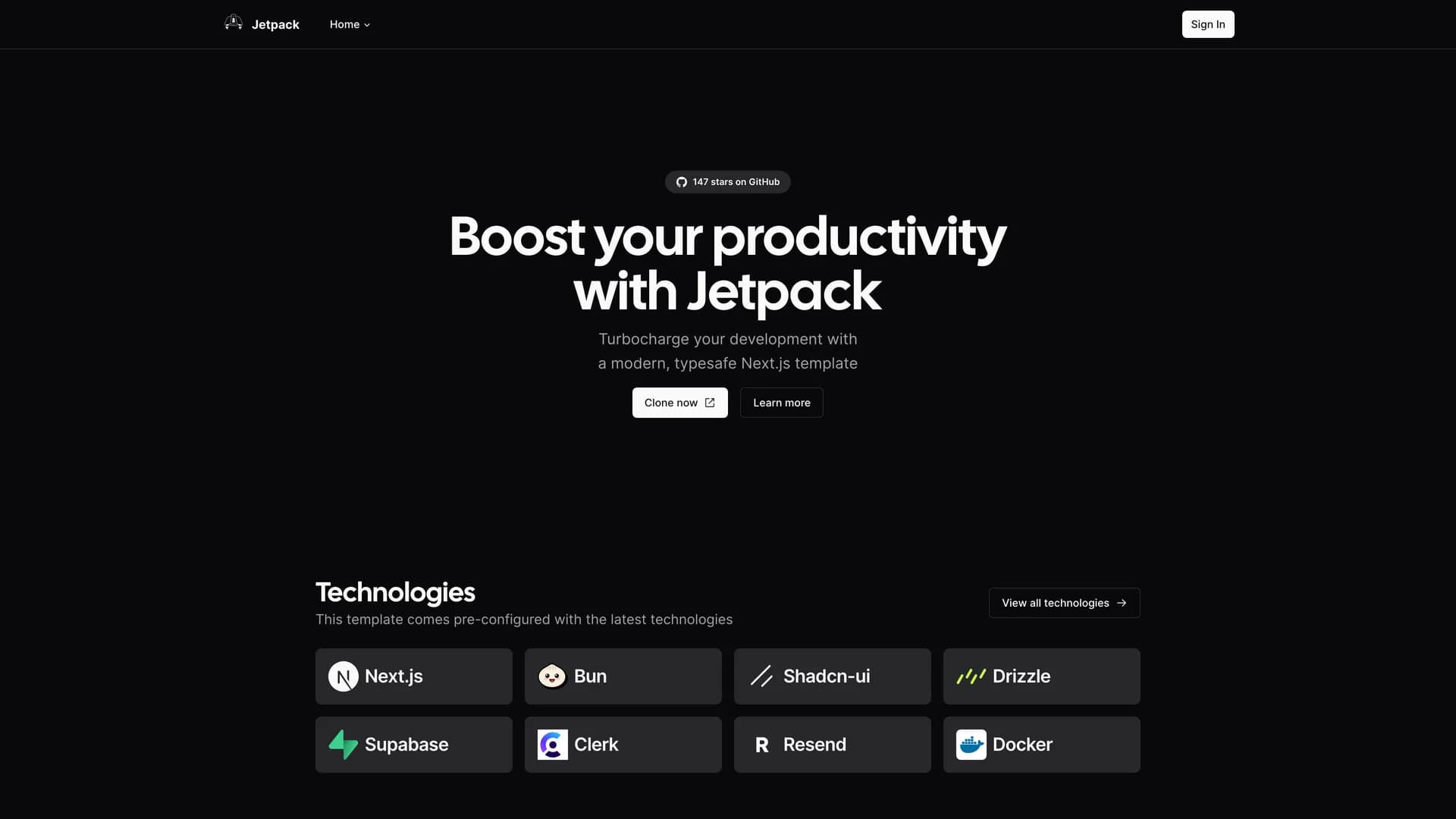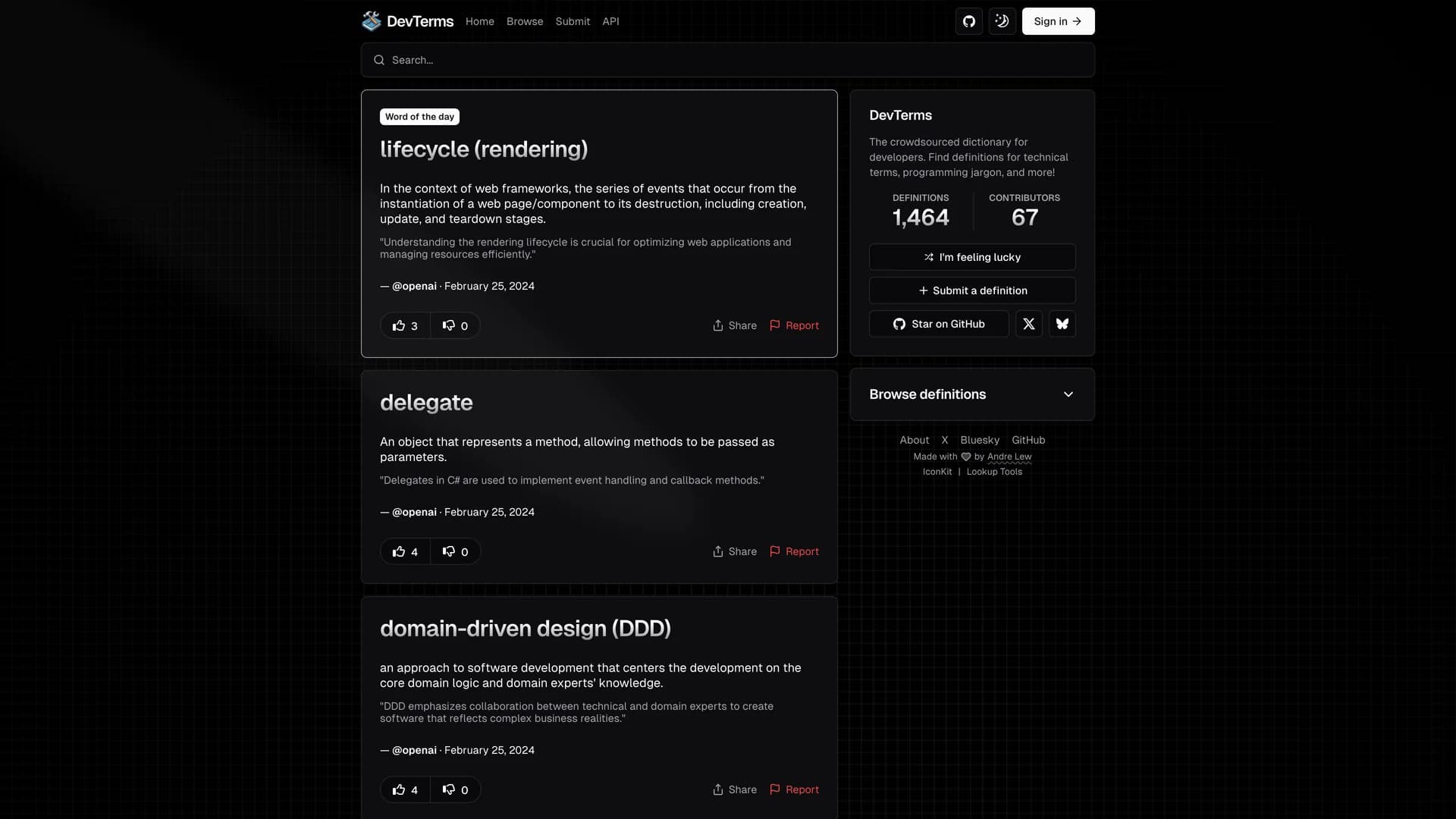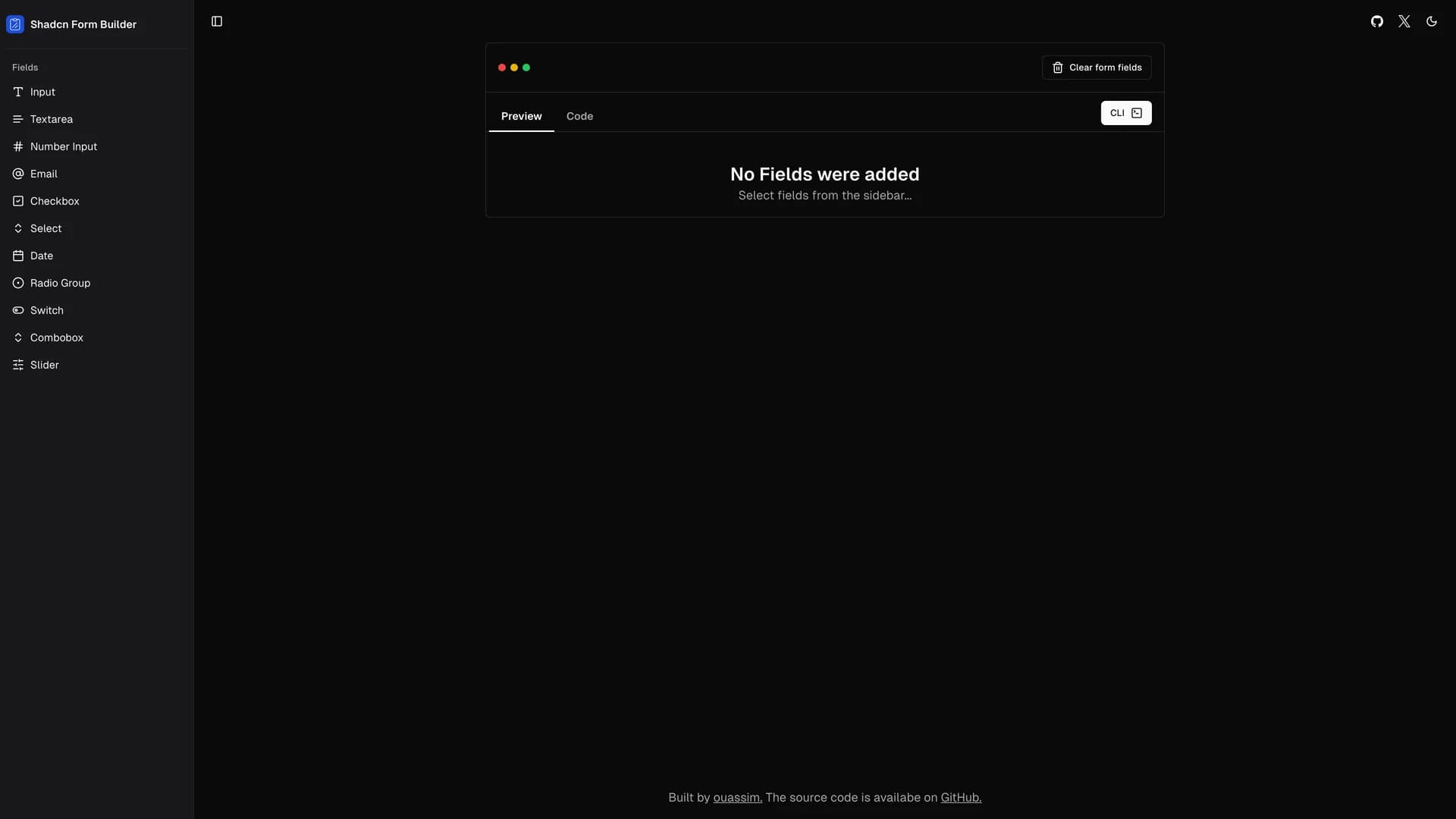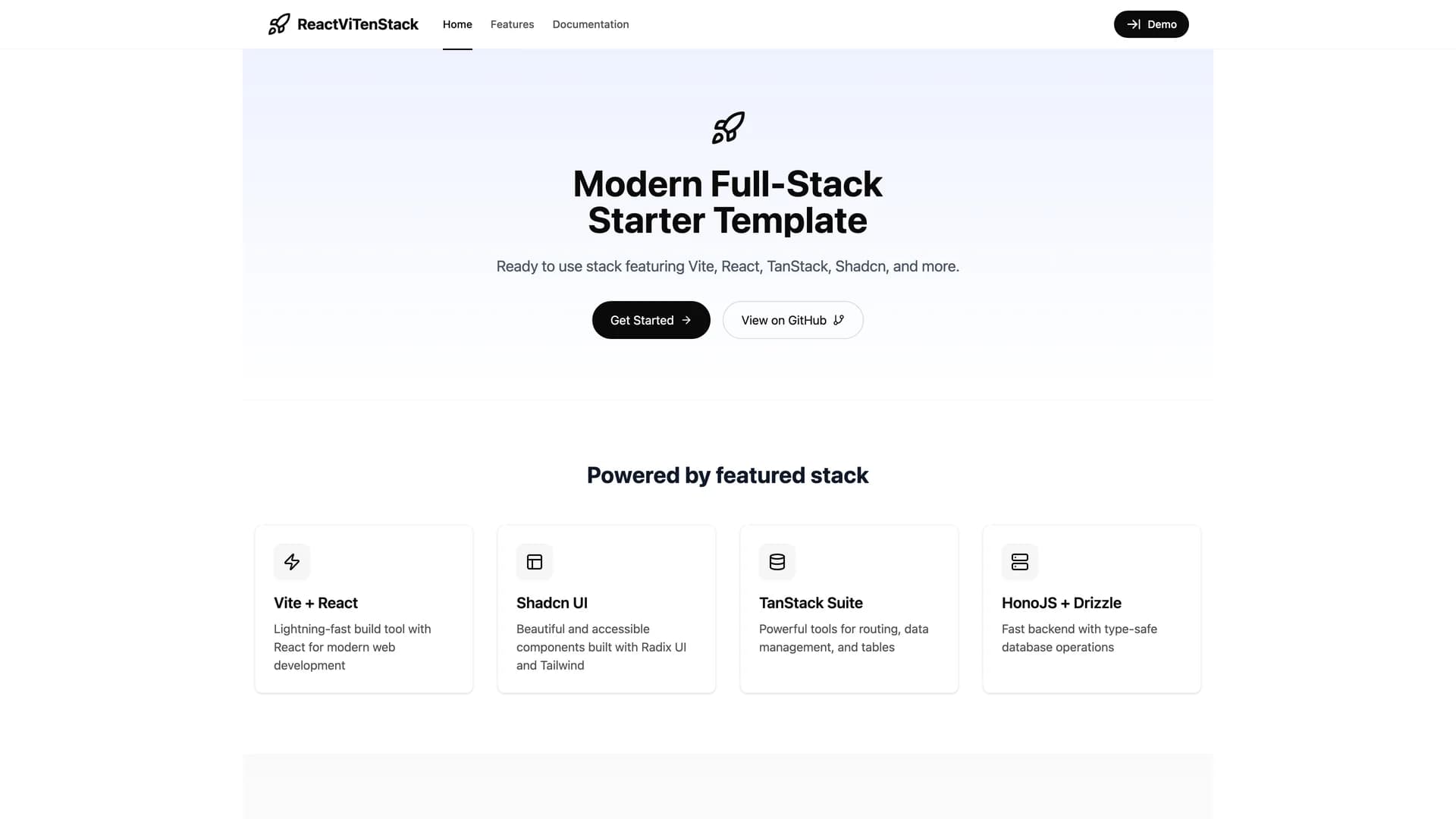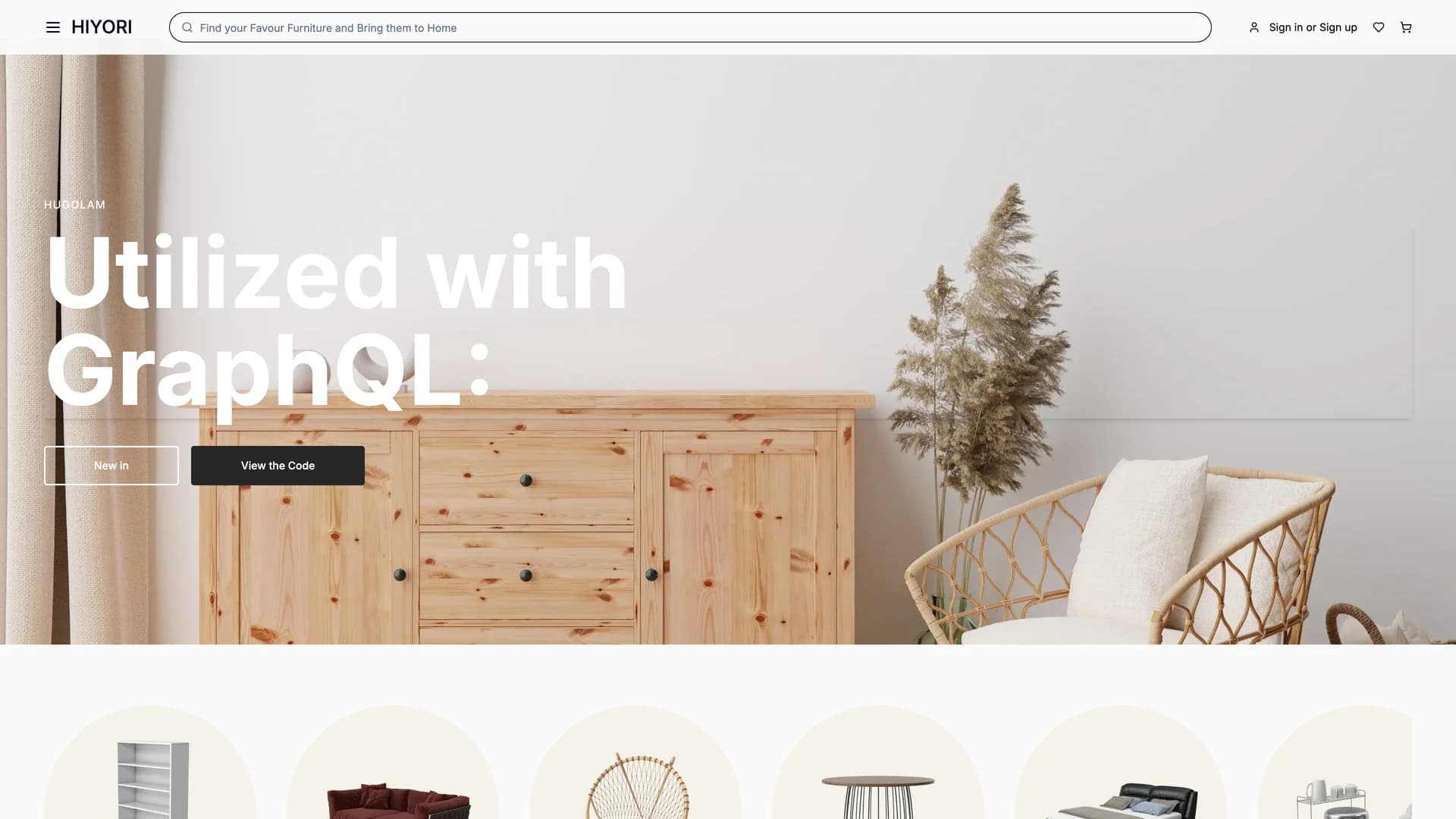React Templates - Drizzle ORM
23 templates • 22 contributors • Open source & free
Available Templates (23)
- CellaCella is a narrow stack TypeScript template for building collaborative web applications with built-in sync engine, offline capabilities, and real-time synchronization. The MIT-licensed template combines PostgreSQL database, Hono web framework, Drizzle ORM, Electric-sync for real-time sync, React, TanStack Router, and shadcn/ui components into a comprehensive starter for reactive applications. Built with TypeScript (97.3% of codebase), Node.js, and Docker support, Cella provides easy CLI-based project initialization with prebuilt authentication and data access systems ready for testing. The template emphasizes developer experience with modern web technologies while offering offline-first architecture and collaborative features out of the box. Perfect for building collaborative tools, team applications with real-time updates, offline-capable web apps, or any project requiring synchronized data across multiple users and devices, Cella demonstrates how to combine modern sync engines with traditional web stacks for applications that work seamlessly online and offline while maintaining data consistency.
- Router.soRouter.so is an open-source, headless form handling and lead routing platform designed for marketing-minded developers who need a flexible, self-hostable solution for managing form submissions and lead distribution. Built with Next.js, TypeScript, Tailwind CSS, PostgreSQL, Drizzle ORM, and shadcn/ui, this platform provides streamlined form routing capabilities without the complexity and recurring costs of traditional marketing automation tools. The platform includes Resend integration for email functionality, supports both local development and Docker-based deployments, provides database migration tools, and offers one-click deployment to Vercel for quick production setup. Perfect for marketing agencies managing multiple client campaigns, SaaS companies capturing and routing inbound leads, developers building custom CRM integrations, or any team requiring sophisticated form handling with complete data ownership and customization control. Router.so eliminates vendor lock-in by providing full access to the codebase, allowing teams to modify routing logic, add custom integrations, and maintain complete control over lead data while benefiting from modern development practices and a clean, maintainable architecture.
- OpenBioOpenBio is an open-source link-in-bio page builder that enables users to create beautiful, customizable personal landing pages for consolidating their online presence across multiple platforms. Built with Next.js, TypeScript, React, Tailwind CSS, Drizzle ORM, and leveraging serverless architecture with edge computing, this modern platform provides an alternative to proprietary services like Linktree with complete data ownership and customization freedom. The application uses Clerk for authentication, Upstash for data storage, tRPC for type-safe APIs, and supports server components for optimal performance. Perfect for content creators managing multiple social platforms, influencers needing a centralized hub for audience engagement, professionals showcasing work across various channels, or anyone seeking to replace subscription-based link-in-bio services with a self-hosted solution. As a community-driven project, OpenBio welcomes contributions and provides developers with the flexibility to customize every aspect of their link pages while maintaining a simple, accessible setup process that requires Node.js 18+ and pnpm 8+, making it easy to deploy and host on your own infrastructure or preferred hosting platform.
- rdt.lirdt.li is a self-hostable, feature-rich, minimalistic URL shortener built with Next.js 14, Auth.js (NextAuth), Drizzle ORM, and serverless Postgres on Neon, providing comprehensive analytics and modern UX without page reloads. This sleek platform offers all-time, daily, and unique view analytics with bar charts visualizing the last 7 days of traffic, editable URL titles and destinations for flexible link management, filtering and search capabilities for large link collections, and light/dark mode themes for user preference. Built on the "Onset" Next.js starter, the application is designed for easy customization by both beginners and experts while maintaining production-ready quality and performance. Perfect for marketing teams tracking campaign link performance, developers needing custom short URLs for projects, businesses wanting link analytics without third-party service dependencies, or content creators managing numerous links across platforms where analytics inform content strategy. Deployed on Vercel with Neon's serverless PostgreSQL, the architecture scales automatically with traffic while minimizing costs during quiet periods. The no-page-reload experience provides instant feedback on user actions, creating a native-app-like experience in the browser. As an open-source project under MIT license, rdt.li enables complete control over link data and analytics, addressing privacy concerns and vendor lock-in issues inherent in commercial URL shortening services.
- Photography WebsitePhotography Website is an open-source photography travel blog built with Next.js 15, Neon serverless Postgres, Drizzle ORM, Better Auth, shadcn/ui, tRPC, and Cloudflare R2 storage, designed to provide photographers with a sophisticated platform for sharing and documenting travel photography experiences with modern web technologies. This feature-rich application offers responsive design optimized for all devices from mobile to desktop, automatic EXIF data extraction from photos capturing camera settings and technical details, secure authentication protecting user accounts and content, cloud storage with Cloudflare R2 for scalable image hosting, location-based photo organization enabling geographical browsing, SEO optimization for discoverability through search engines, and dark and light themes matching user preferences. The platform addresses the unique needs of photographers who want to showcase work with context (location, camera settings, technical details) while maintaining a clean, gallery-focused presentation that emphasizes images over text. Perfect for travel photographers documenting journeys with rich metadata, professional photographers building portfolios with technical credibility, photography enthusiasts sharing work with communities, or anyone creating visual narratives where images, locations, and technical details combine to tell complete stories. The automatic EXIF extraction eliminates manual data entry for technical information, while location-based organization enables viewers to explore photography by destination, creating engaging browsing experiences that traditional chronological blogs cannot provide, making this platform ideal for photographers whose work is intrinsically connected to places and technical craft.
- CarhiveCarHive is a full-featured car rental marketplace application built with Next.js 14 App Router, TypeScript, and modern web technologies to demonstrate best practices for building e-commerce platforms. Powered by Clerk for authentication, Vercel Postgres for database management, Drizzle ORM for type-safe database queries, and shadcn/ui components for the interface, this project showcases how to build a production-ready rental platform with advanced features. The application includes comprehensive vehicle listings with detailed specifications and high-quality images managed through Cloudinary, advanced search and filtering by location, price, vehicle type, and availability, dynamic routing for individual car detail pages, user authentication with role-based access control via Clerk, Stripe integration for secure payment processing and booking transactions, an infinite logo slider showcasing partner brands, responsive design optimized for mobile and desktop experiences, and database schema with proper relationships between users, vehicles, and bookings. CarHive serves as an excellent reference for developers building marketplace applications where multiple vendors or inventory items need detailed presentation, e-commerce platforms requiring payment integration and booking systems, rental or reservation systems for equipment, properties, or services, and any project requiring image optimization and CDN integration with Cloudinary. The codebase demonstrates professional patterns for state management, form handling, database migrations, and API route organization in Next.js applications.
- JetpackJetpack is a comprehensive, production-ready Next.js 14 starter template that eliminates weeks of configuration by providing a fully integrated stack with Bun, shadcn/ui, TypeScript, Supabase, Drizzle ORM, Docker, Clerk authentication, and Resend email, perfect for launching modern web applications rapidly. Unlike minimal starters, Jetpack provides opinionated, battle-tested configurations that work together seamlessly, allowing developers to focus on building features rather than debugging integration issues between different technologies. The template includes Supabase for PostgreSQL database hosting with real-time capabilities, Drizzle ORM for type-safe database queries and migrations, Clerk for comprehensive user authentication and management, shadcn/ui and Tailwind CSS for beautiful, accessible components, Zod validation for runtime type checking across forms and APIs, Docker containerization for consistent development and deployment environments, GitHub Actions CI configured for automated testing and deployment, and Resend integration for transactional email delivery. The codebase demonstrates proper Next.js 14 app router patterns, environment variable management with validation, database schema design and migration workflows, and authentication flows including protected routes and user sessions. Jetpack's roadmap includes a planned "Pro" version with Stripe checkout integration, advanced user management features, admin dashboards, notification systems, and LLM integrations, showing the template's extensibility. This starter is invaluable for developers building SaaS products who want to skip months of boilerplate setup, teams establishing consistent architecture patterns across multiple projects, indie hackers launching MVPs who need to move fast with reliable foundations, and anyone learning modern full-stack development with current best practices. Jetpack represents the stack you'd build after launching several products and learning what actually matters.
- DevTermsDevTerms is a crowdsourced dictionary website specifically designed to help developers find clear, community-contributed definitions for technical terms, programming jargon, acronyms, and industry concepts that often confuse newcomers and experienced developers alike. Built with Next.js, React, Tailwind CSS, shadcn/ui components, Drizzle ORM for type-safe database queries, Turso for SQLite database hosting, and Meilisearch for powerful, typo-tolerant search functionality, this platform creates a collaborative knowledge base where the developer community can contribute, refine, and discover technical definitions. The application features crowdsourced definitions allowing multiple perspectives on technical concepts, lightning-fast search powered by Meilisearch with autocomplete and fuzzy matching, community voting and curation to surface the best explanations, social media integration sharing daily developer wisdom on X (Twitter) and Bluesky, clean, distraction-free interface optimized for quick reference, and comprehensive coverage of programming languages, frameworks, tools, and methodologies. Hosted on Vercel for global edge delivery, DevTerms addresses the common frustration of encountering unfamiliar technical terminology in documentation, code reviews, or technical discussions without an accessible, developer-friendly resource to consult. The platform is perfect for junior developers learning industry terminology and best practices, experienced developers encountering unfamiliar acronyms in new domains, technical writers ensuring accurate usage of terms in documentation, coding bootcamp students building their technical vocabulary, and anyone in tech who values clear, community-validated definitions over generic dictionary entries. The open-source nature encourages community contributions, making DevTerms a living resource that evolves with the industry. This project demonstrates how to build community-driven content platforms, implement advanced search with Meilisearch, use Drizzle ORM with SQLite databases, create engaging developer tools, and foster collaborative knowledge sharing in technical communities.
- Shadcn UI Form BuilderThe shadcn/ui Form Builder is a powerful WYSIWYG (What You See Is What You Get) form generation tool that revolutionizes form development by allowing developers to visually select input fields and automatically generate production-ready code with integrated shadcn/ui components, React Hook Form, and Zod validation schemas. Built with Next.js, TypeScript, Tailwind CSS, Drizzle ORM for database management, and shadcn/ui components, this tool eliminates the tedious manual work of writing form boilerplate, validation schemas, and component wiring. The form builder features a visual drag-and-drop interface for selecting and configuring input fields, automatic Zod schema generation ensuring type-safe validation, seamless integration with React Hook Form for performant form state management, one-click code generation producing copy-paste ready form components, support for various input types including text, email, number, select, checkbox, radio, and more, multi-field line configurations for complex form layouts, and customizable styling following shadcn/ui's design patterns. The platform's philosophy is simple: imagine selecting the input fields you need and having everything else—validation, state management, error handling, accessibility—done automatically. The ambitious roadmap includes expanding input field types with file uploads, OTP inputs, and multi-select components, support for alternative validation libraries beyond Zod, and pre-built form templates for common use cases like contact forms, registration forms, and surveys. This tool is invaluable for developers building forms who want to skip repetitive boilerplate and focus on unique logic, teams establishing consistent form patterns across multiple projects, rapid prototyping scenarios where form creation speed matters, applications requiring numerous forms with different field configurations, and anyone frustrated with manually wiring React Hook Form and Zod together. The Form Builder demonstrates how to create developer productivity tools, implement code generation with proper formatting and imports, integrate form libraries for optimal developer experience, and design intuitive interfaces for technical tasks.
- React Vite NStackReactViTenStack is a modern, full-stack starter template that kickstarts web application development with an efficient, flexible architecture offering seamless integration and complete type safety from frontend to backend. Combining React with Vite for blazing-fast development, TanStack Suite (Router, Query, Form) for powerful data management and routing, HonoJS as a lightweight, Express-like backend framework, Drizzle ORM for type-safe database operations, Postgres via NeonDB for scalable cloud database hosting, shadcn/ui components for accessible UI, Tailwind CSS for styling, TypeScript throughout for end-to-end type safety, and Zod for runtime validation, this template eliminates weeks of configuration by providing a cohesive stack that works together seamlessly. The architecture features Vite's instant hot module replacement for rapid iteration, TanStack Router for type-safe routing with automatic code splitting, TanStack Query for efficient server state management with caching and invalidation, TanStack Form for performant form handling with validation, HonoJS backend providing familiar Express-like APIs with better TypeScript support, Drizzle ORM offering SQL-like queries with full type inference, NeonDB's serverless Postgres eliminating database infrastructure management, and Zod schemas ensuring data integrity across the stack. The monorepo structure managed by PNPM workspace demonstrates professional project organization, keeping frontend and backend code in logical separation while sharing types and utilities. This template is perfect for developers building SaaS products who want full-stack type safety without complexity, teams establishing modern development standards across projects, indie developers launching MVPs with scalable architecture, developers learning contemporary full-stack patterns with best-in-class tools, and anyone frustrated with the complexity of configuring modern JavaScript stacks. The comprehensive documentation and demo video help developers understand architectural decisions and get productive quickly. ReactViTenStack demonstrates how to achieve complete type safety from database to UI, structure monorepos for fullstack applications, integrate modern tools for optimal developer experience, and build performant applications with contemporary best practices.
- Hiyori Ecommerce Next.js SupabaseHiyoRi is a full-featured e-commerce platform with a custom Content Management System, delivering a modern online shopping experience with powerful backend management capabilities. Built with Next.js 14, GraphQL, Supabase, Drizzle ORM, shadcn/ui, and Tailwind CSS, it provides everything needed to launch and manage an online store. The platform features a complete product catalog with categories and variants, shopping cart and checkout flow with Stripe integration, customer account management with order history, admin CMS for inventory and order management, and real-time inventory tracking. HiyoRi includes GraphQL API for flexible data queries, image optimization and CDN integration, SEO-optimized product pages, responsive design for mobile shopping, and comprehensive analytics dashboard. Perfect for building fashion e-commerce sites, multi-vendor marketplaces, digital product stores, or any business requiring a scalable online retail platform with custom content management.
